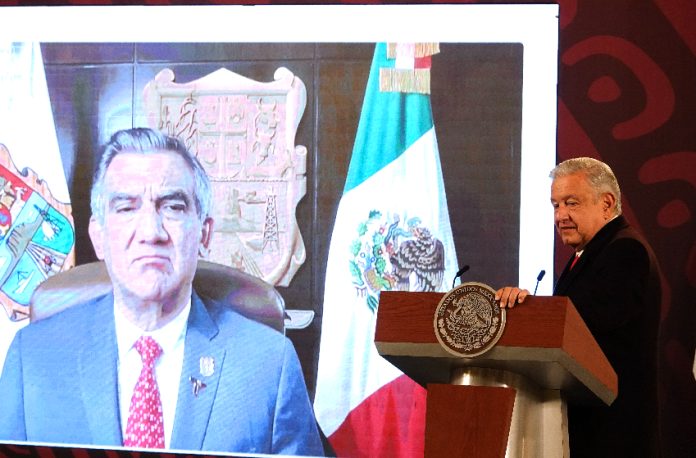Federal Security Minister Rosa Icela Rodríguez and Tamaulipas Governor Américo Villareal provided an update on Friday morning on the case involving the abduction on Dec. 30 and release on Jan. 3 of 32 migrants.
Twenty-six of the migrants who were abducted near the border city of Reynosa are Venezuelan, while the other six are Honduran, Rodríguez said. She noted that 12 are women, eight are girls, nine are men and three are boys.
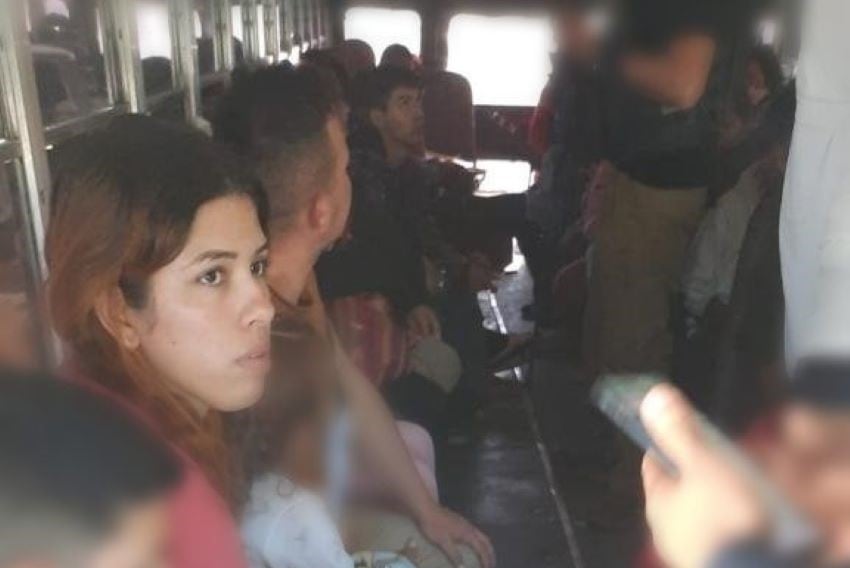
A one-year-old girl was not initially counted among those abducted. Rodríguez previously said that Ecuadorians, Colombians and Mexicans were also among those kidnapped.
Federal officials said on Wednesday that the migrants had been “rescued,” but President López Obrador acknowledged on Thursday that they were released by their captors and left in a shopping center parking lot.
No arrests have been made in connection with the abduction, but authorities are confident that their investigations will lead to the kidnappers being taken into custody. The National Immigration Institute will issue visitor permits to the abducted migrants, allowing them to access a range of services.
Here are the key points from the update on the case presented at López Obrador’s Friday morning press conference.
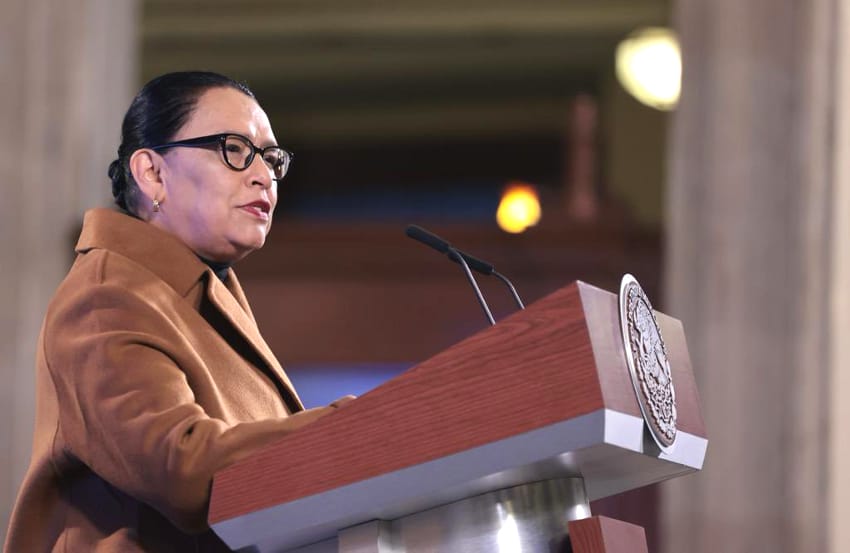
Per Rodríguez’s report
- The bus on which the migrants were traveling was intercepted by armed men in five pick-up trucks on the Reynosa-Matamoros highway in the municipality of Río Bravo at approximately 7:30 p.m. last Saturday.
- A total of 37 passengers including a baby were on the bus.
- The “criminals” forced the passengers to disembark the bus and put 32 of them in their vehicles, leaving behind five people – two Mexicans and three Venezuelans.
- The bus driver reported the incident to authorities before completing the journey from Monterrey to Matamoros. Police escorted the bus from Nuevo Progreso to Matamoros.
- The migrants were driven along a dirt road for 20 minutes until they were put onto an “old bus” and taken to a property with a warehouse and “a nearby house.”
- The migrants were stripped of their cell phones and other “items of value.”
- The “kidnappers” called the families of their victims in the early hours of Dec. 31 to demand ransoms.
- Some families paid “a part” of the money demanded by the criminals.
- Federal and state authorities immediately launched a search operation. Police dogs and drones assisted the search efforts across six municipalities. The abducted migrants’ telephones were traced and authorities interviewed local residents as part of their investigations.
- The Tamaulipas Attorney General’s Office (FGJ) reported the location of the migrants in the municipality of Río Bravo on Wednesday.
- The migrants were “immediately” taken to FGJ offices for a medical checkups and all were found to be in good health “without injuries.”
- The migrants told authorities they were released due to “the deployment of federal forces in the area.”
- “There are very clear lines of investigation to achieve the arrest of the culprits.”
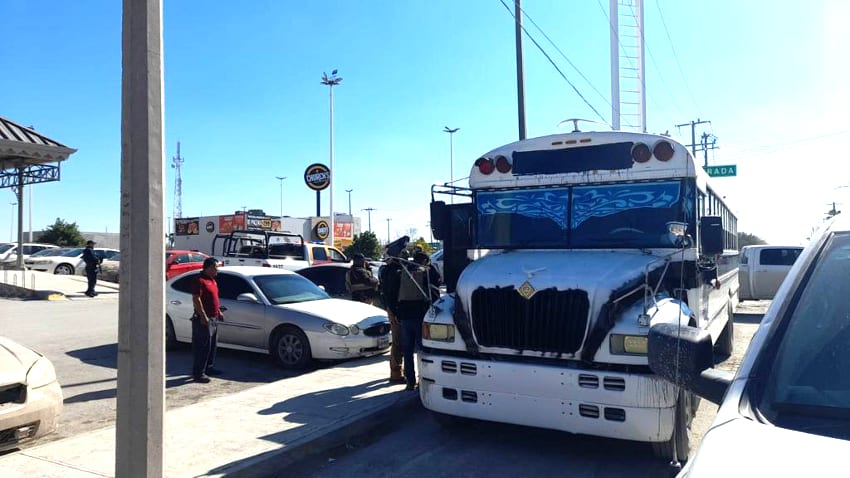
Per Villareal’s report
- Three of the abducted Venezuelans also have Colombian nationality, but they chose to receive consular assistance from Venezuelan authorities.
- The National Immigration Institute and the DIF family services agency are assisting the migrants. Some of the abductees are continuing to provide testimony to authorities.
- There is no evidence to support allegations that police were involved in the abduction of the migrants.
- Organized crime groups are seeking “new ways” to make money off migrants as many are now moving through the country on public transport to attend appointments with U.S immigration authorities rather than paying people smugglers for their services. Extortion – of which many migrants have been victims in Tamaulipas and other parts of the country – is one of those ways.
López Obrador weighs in
- It is “offensive” and “very irresponsible” to say there was police involvement in the abduction when there is no evidence to support the claim.
- Claims that federal forces were deployed to Tamaulipas due to a situation of “ungovernability” in the northern border state are “categorically false.”
- “In Tamaulipas, we’ve managed to considerably reduce the crime rate. … We can prove it.”
Report: over 300 migrants kidnapped in six states in 2023
The Milenio newspaper reported Friday that more than 300 migrants, including Mexicans traveling through the country en route to the United States, were kidnapped in Chihuahua, San Luis Potosí, Veracruz, Chiapas, Sonora and Tamaulipas last year.
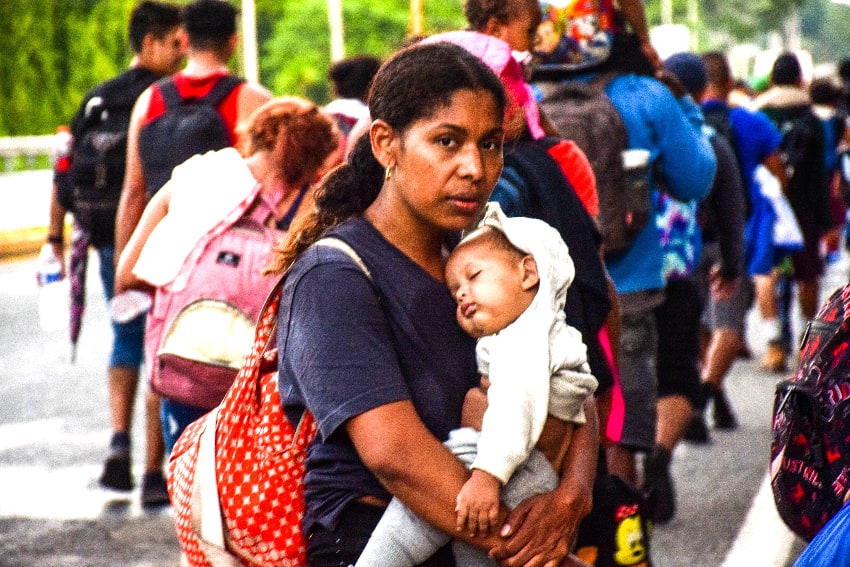
The newspaper, which looked at official data and spoke to human rights advocates, said that at least 150 migrants were kidnapped in Chihuahua in 2023 and at least 100 were abducted in San Luis Potosí, including a group of 49 in the municipality of Matehuala last May.
Milenio said that more than 30 migrants were kidnapped in Veracruz last year and that 17 were abducted in Chiapas in December alone. It also reported that at least 30 Mexicans who left their home state of Oaxaca for the United States were kidnapped by armed groups in Tamaulipas and Sonora last year. Some of the migrants from Oaxaca are still missing.
Migrants are frequently targeted by criminal groups as they travel through Mexico toward the northern border. Many have been forcibly recruited by cartels, while others have been killed.
Mexico News Daily
